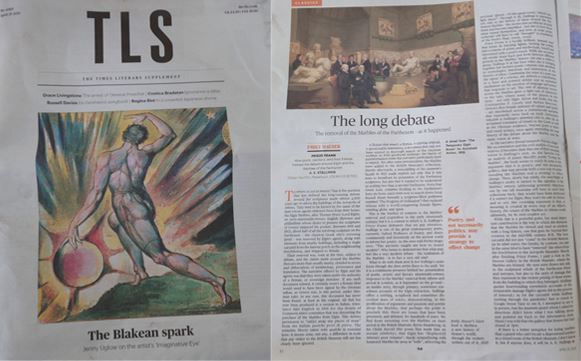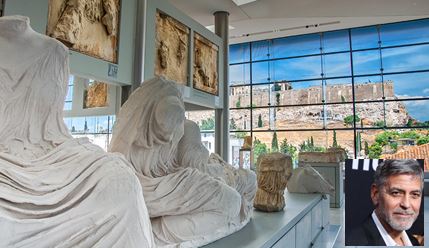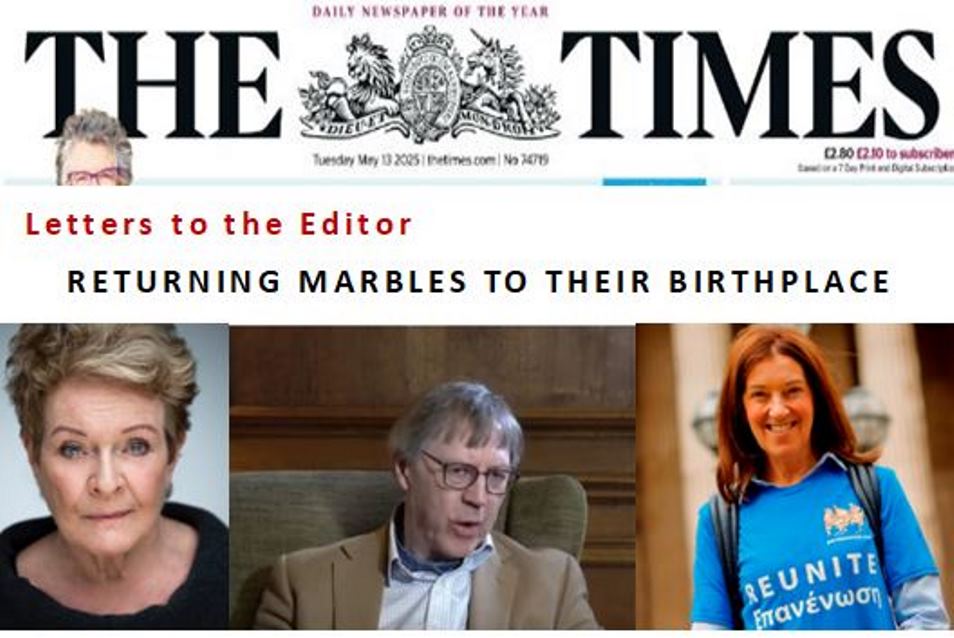Emily Hauser considers the long debate of the Parthenon Marbles as she reviews A.E. Stallings Frieze Frame: How poets, painters, and their friends framed the debate around Elgin and the Marbles of the Parthenon.
Emily writes in the TLS: "Frieze Frame is lucidly brilliant, learned read that wears its learning lightly, inviting the reader into a coterie of artists and intellectuals, traced and uncovered with a poet's touch. While the occasionally erratic leaps back and forth between different periods in the Marbles' history can take a while to grasp, Stallings is at her best when she is bringing together her incisive poetic criticism with attention to etymologies, intertexts and interactions in the history of ideas. Combining the vice of a poet and rigour of a scholar, she delivers a contribution to a keen and pointed debate and an extended mediation on the emotion of language and poetry that responds to art. The web of allusions woven across the Marbles gives a tight cast of characters to the tale, where many of the players in the story - not only Elgin, Byron and Keats, but also Constantine P. Cavafy and Melina Mercouri, Greece's first female minister of culture and sports - are interlinked across centuries-old narrative that repeatedly turns back on itself. Particularly valuable is Stallings's attention (she is , after all, an acclaimed translator of Greek) to the Greek as well as the Ottoman evidence, beyond poets to letter and travel writers, once again unravelling the long history of the debate about the Marbles, and the many voices at stake."
Emily visits the British Museum after reading Frieze Frame and once in the Parthenon Galleries she writes that her eyes were drawn "not only to the sculptural reliefs of the Parthenon frieze and metopes, but also to the story of damage that they represent in the violent prising of these stones from the building to which they belonged."
Is it poetry, and not necessarily politics that may provide a strategy to effect change?
To read Emily Hauser's article in full, visit the TLS.

To order A.E. Stallings Frieze Frame: How poets, painters, and their friends framed the debate around Elgin and the Marbles of the Parthenon, check most online book stores including Waterstones.
We are also reminded of Stuart O'Hara, a BCRPM member's review of A.E. Stallings words in the Hudson Review, written in October 2023.
Stallings’ article is hefty – 110 very readable pages – and should be published as a standalone pamphlet. If that were to happen, it would surely be the best survey of the Marbles debate for the general reader since Christopher Hitchens’ The Parthenon Marbles: The Case for Reunification which came out in 1997, and the third edition published by Verso was launched at Chatham House by BCRPM in May 2008. To finish, here’s what CP Cavafy, probably the most famous Greek after Pericles to appear in this article and one who was raised in the UK, in Liverpool, wrote in the lengthy letters page debate started by Harrison’s Nineteenth Century polemic:
'It is not dignified in a great nation to reap profit from half-truths and half-rights; honesty is the best policy, and honesty in the case of the Elgin Marbles[sic] means restitution.'





Comments powered by CComment